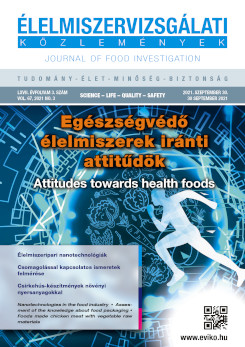Consumer acceptance of food nanotechnology
Main Article Content
Abstract
Today, food industry developments are driven by two megatrends: global warming and the need to address nutrition-related adverse health consequences (diseases of civilization, obesity, hunger and an aging society). As a result, consumer preferences have also changed, as „everyday” needs such as the acceptable price, pleasant taste and safe consumption of foods, as well as for the food to satisfy physiological needs, have become essential requirements and do not represent a demonstrable market advantage. The market presence of a product is expected to be successful if, in addition to the above, its ingredients and physiological effects can be demonstrated to improve or increase consumer well-being, their state of health or physical performance. One of the fastest growing disciplines today is nanotechnology, which has many applications in the food industry. Even though this technology brings unprecedented benefits to consumers and may be able to solve many global problems, nanofoods also carry many risks and dangers. Although nanotechnology is still unknown to many, the willingness to buy is very high among those interviewed if the technology improves some of the properties of the food. Based on their attitudes, consumers can be divided into two well-distinguishable groups: those who see potential advantages and disadvantages in radically different ways.

